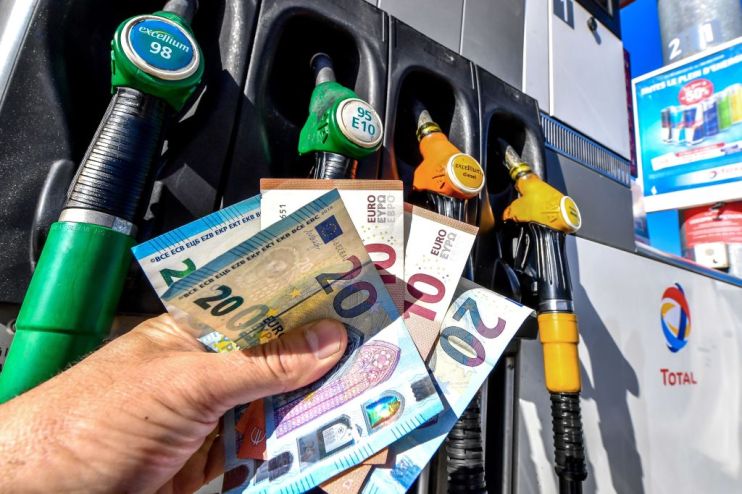Oil stocks fall as coronavirus hammers oil prices
Shares in oil and mining firms slipped this morning as oil prices continued to tumble, with fears over the coronavirus driving down demand for fuel.
Brent crude fell over 3.5 per cent to hit $57.78, its lowest levels since October, after sixth straight sessions of decline. West Texas Intermediate fell 3.5 per cent to $52.30.
China is the world’s largest importer of oil, so a slowdown in demand has the potential to derail prices.
Multinationals Glencore, Rio Tinto, and Anglo American all saw their shares fall over three per cent as markets felt the pressure of the worsening outbreak.
Long-haul airlines like KLM, Lufthansa and International Consolidated Airlines Group, are all down at least four per cent on the back of concerns that air travel to and from the Far East will be hit
De facto Opec leader Saudi Arabia said that it was paying close attention to developments in China, but did not make any announcements on whether it would take action to curb a surplus of oil.
Energy minister Prince Abdulaziz bin Salman said markets are being “primarily driven by psychological factors and extremely negative expectations adopted by some market participants despite (the virus’s) very limited impact on global oil demand”.
The minister pointed to the limited impact of the SARS outbreak in 2003 to try to reassure the market as to its robustness.
He was backed up by his counterpart from the UAE, Suhail al-Mazrouei, who said: “It is important that we do not exaggerate projections related to future decreases in oil demand due to events in China, and the market does not over-react based on psychological factors.”
However, Craig Erlam, senior analyst at Oanda, said: “The supply/demand dynamics are not favourable right now so it was important the the energy minister stressed Opec’s flexibility and capability to do more, should they need to.
Read the news as it happens by following City A.M. on Twitter.
“It may help stabilize prices which are now back at the lower end of where producers would like them to be”, he added.
Opec, the oil producer cartel, are set to meet again at the beginning of March to discuss further output cuts. The lower demand for fuel caused by the outbreak may present oil prices with new problems.
The group is already officially curbing supply by 1.7m barrels a day, with Saudi Arabia taking a further 400,000 barrels of the table voluntarily in order to prop up oil prices.
Naeem Aslam, chief market analyst at Avatrade, said: “The reality is that shocks to the Chinese economy always have ripple effects and the commodity markets are deeply affected by it. In simple terms, when economic engines start to grind, the demand for fuel falls.”
Last week Brent crude lost around $5 as the commodity fell by over two per cent for consecutive sessions, hurting oil prices.
Analysts at JPM Commodities fear that if the disease turns into a Sars-style epidemic, oil prices might take a hit of up to $5 per barrel.
According to Standard & Poor, the outbreak could cut demand by 260,000 barrels per day, much of which will come from jet fuel as risk of infection stops people from travelling.
Neil Wilson, chief markets analyst for markets.com, said that “there’s a good chance we see $50 again, which is a level that would likely spark a response from Opec when they meet in March”.
Analysts consider the $51.50 – $51 level key for the barrel. Carlo de Casa from Activtrades said the price would “be a significant test for understanding how far this declining momentum could go.”
